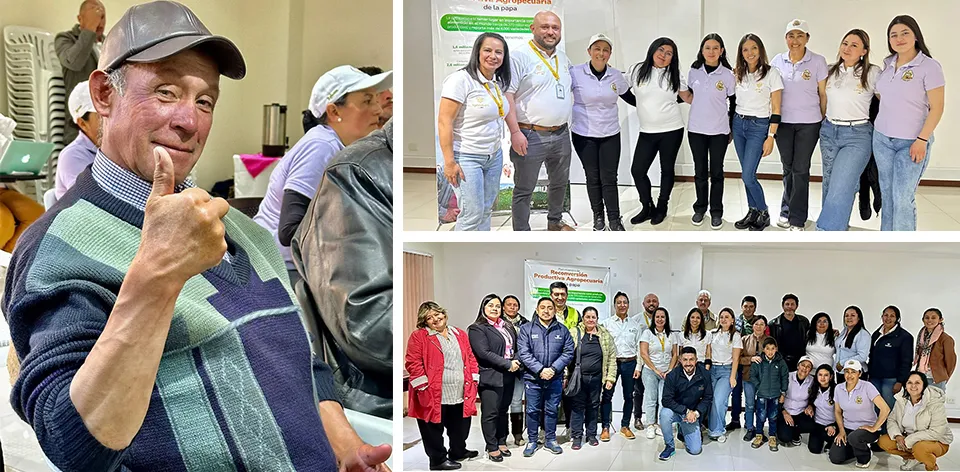 9/7/2024
9/7/2024
Boyacá: Committed to the Productive Conversion of Potatoes!

Potatoes are the third most important food product worldwide, with over 4,000 edible varieties.
Learn more about the Master Plans for Productive Conversion at: https://www.youtube.com/watch?v=-mMNJiQUQug
Tunja, Boyacá. (@UPRAColombia, @claudialili76). "We, the women farmers and potato producers of Cucaita, are doing things better; we started the productive conversion in our region with better environmental practices, diversification in product transformation, associativity, and participation of rural women and youth; that’s why today, we are here participating in the workshop and representing the producers of our Boyacá region. Because we want to consolidate what we built in the Productive Planning Plan." With these words, Liliam Otálora Niño, representative of the Pijaos Agricultural Potato Cooperative (COOPAP) of Cucaita, emphasized the participatory and collective construction characterizing the Master Plan for Productive Conversion in the city of Tunja.
Fidel Londoño Stipanovic, leader of this process at the Unit for Rural Agricultural Planning (UPRA), explained, "UPRA led this exercise jointly with MinAgricultura, Fedepapa, and the Boyacá Government, and included representatives from associations, producers, unions, national and regional agricultural and environmental entities, and academia. The productive agricultural conversion is not about changing the activity we do with potatoes but improving those practices so that the results are sustainable in social, economic, and environmental terms."
Claudia Romero Schadegg, an expert from UPRA, stated: "The objectives we have set with, for, and from the regions are: 1. Contribute to reducing gaps in the performance and sustainability of agricultural activities. 2. Establish guidelines to direct the institutional offer of the agricultural sector, to drive the transformations that productive systems and the territory require. 3. Reduce land-use conflicts within the agricultural frontier, and 4. Contribute to improving the supply and quality of agricultural products linked to the country's food security."
Héctor Villareal, technical secretary of the potato chain, pointed out: "Continuing with the goals we set in the Potato POP, this Master Plan for Conversion territorializes the stakes in the departments of Cundinamarca, Boyacá, Santanderes, Antioquia, Cauca, and Nariño. The results we expect are: the technical document, the roadmap, and a map of productive conversion scenarios; to move from planning to action, counting on a strengthened potato chain."
Colombia has 184,000 hectares planted with potatoes, cultivated by more than 100,000 farmers; this practice directly and indirectly supports about 264,000 Colombians. It is present in 280 municipalities located in 18 departments, which together have an area of 1.6 million hectares suitable for potato cultivation. The economic, social, and environmental importance of potatoes in our country is evident; it is also one of the main cold-climate agricultural activities.
The productive conversion of Colombian potatoes: Actions to improve agricultural production!

